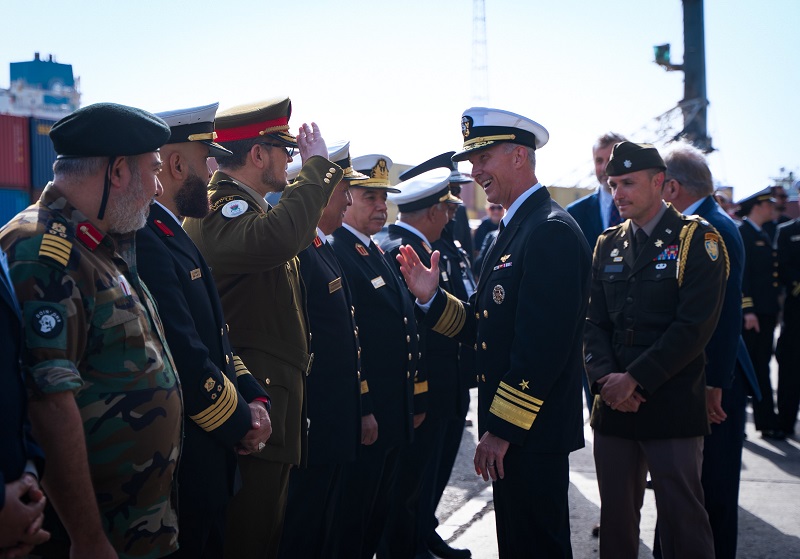Tripoli— The Commander of the US 6th Fleet Vice Admiral Jeffery T. Anderson arrived in Tripoli on Sunday accompanied by Ambassador Richard Norland, the US Special Envoy to Libya, and Jeremy Berndt, Charge d’Afffaires on board of the USS Mount Whitney, flagship of the US 6th Fleet, according to a US Embassy in Libya’s statement on its X platform.
Mr. Anderson has started an official visit to Tripoli and Benghazi during which he will be discussing “US-Libya security cooperation, regional security, and US support for the unity of Libya,” the US Embassy added.
The USS Mount Whitney docked in Tripoli navy base where a reception talk place on board and was attended by Libyan military and civilian officials.
The statement said that Anderson, Norland and Berndt held a discussion that focused on “strengthening US-Libyan military ties and helping Libyans advance their military integration efforts. The US remains committed to partnering with Libyans across the security, economic and political domains to increase stability and prosperity.”
The visit by the flagship of the US 6th Fleet to Tripoli has been a focus of intensive discussion in the Libyan social media. Opinions varied between those who welcomed the visit as a sign of improving relations and cooperation between Washington and Tripoli; and those who considered it a military intervention in Libya at a time of instability and chaotic crisis in the country. Many, however, recalled the ill-fated USS Philadelphia which on October 31, 1803 ran aground on an uncharted reef off Tripoli Harbor.
Meanwhile, the US Embassy in Libya did not say when the American officials will be in Benghazi or whether the USS Mount Whitney itself will be sailing to Benghazi.
In early June 2009, the US Coast Guard Boutwell cutter made a three-day visit to Tobruk Port and became the first US military vessel to visit Libya in more than 40 years. The visit by Boutwell was “part of a theatre security cooperation mission to strengthen the maritime partnership between the United States and Libya,” said the US military’s Africa Command as cited by Reuters at the dime.
